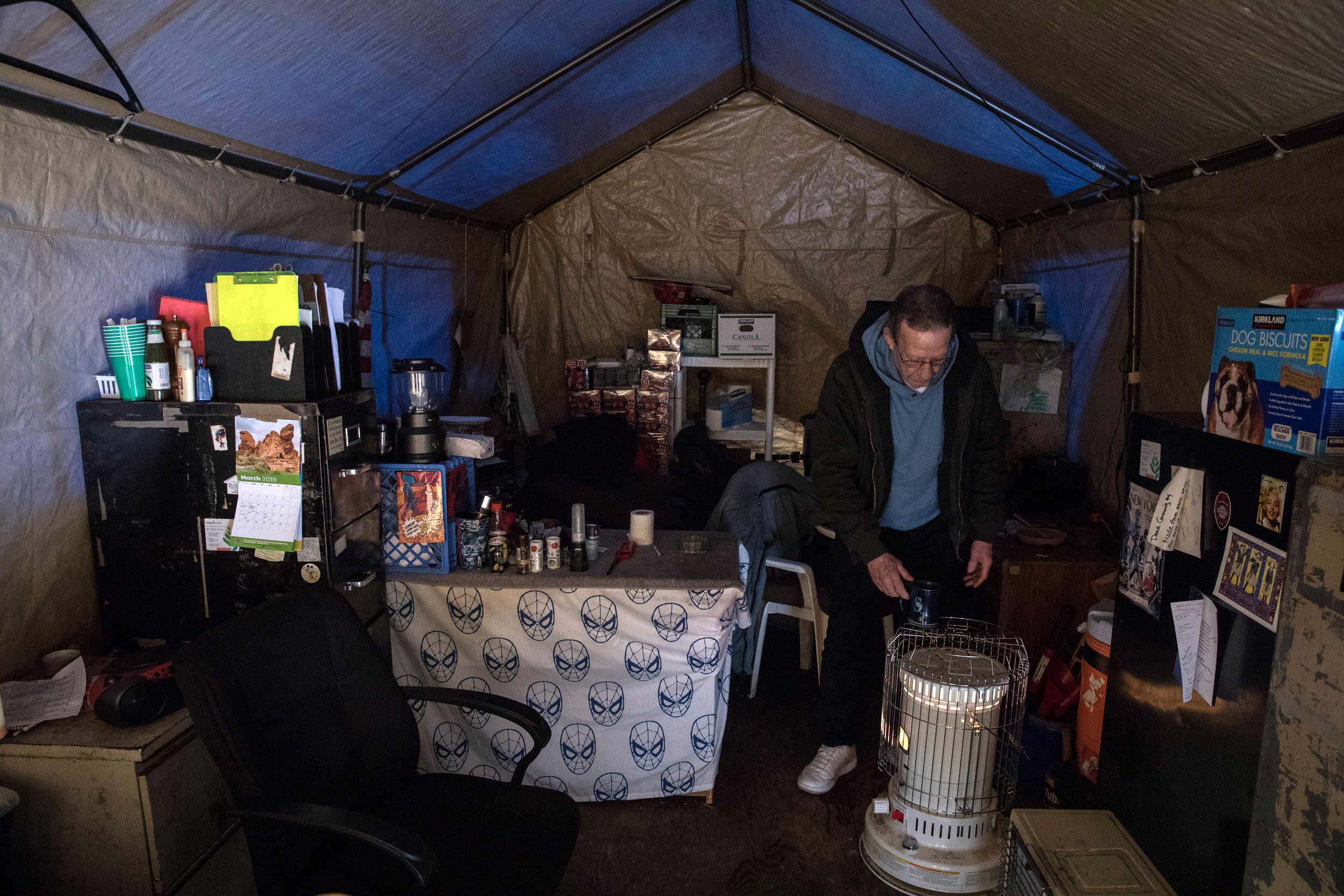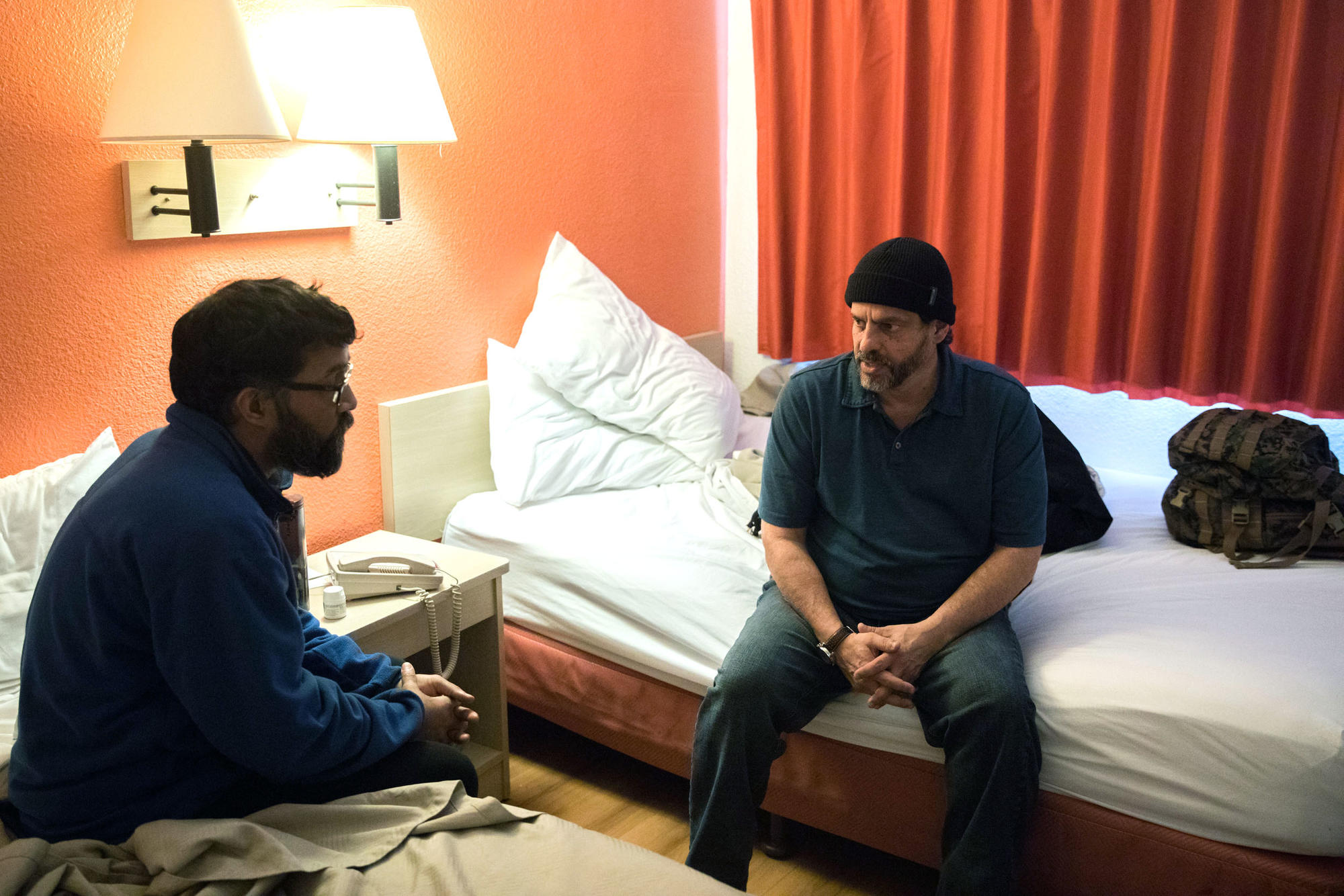According to Sean Whitcomb, public affairs director for the Seattle Police Department, several King County residents have already died from exposure. The first death occurred on Thursday. Derek C. Johnson was found facedown on the pavement at the SoDo light-rail station. Johnson was thought to be homeless. The cause of the second death, which happened Sunday, has not been confirmed, but is likely a result of overnight exposure, Whitcomb said. A third possible victim of the cold was found at a boarding house in Capitol Hill shortly after midnight on Sunday. Two people with permanent addresses have also died from exposure: Carl Soderberg, 53, in Maple Valley and Stanley Little, 84, in Fall City.
There have been a number of efforts to help those sleeping on the streets. Seattle's Union Gospel Mission, for example, has expanded its daily search and rescue efforts by attempting to help those living in vans or other vehicles; community centers also have opened their doors. And thanks to the generosity of some of the area’s Muslims, a small portion of the region’s homeless population was able to escape the snow over the weekend.
The Muslim Association of Puget Sound (MAPS) provided hotel rooms for all 28 residents of Tent City 4, an encampment in Issaquah. The total cost of providing 14 rooms at a local Motel 6 from Friday, Feb. 8, until Tuesday, Feb. 12, was approximately $4,500.
"Our Muslim faith teaches us to take care of our neighbors during times of need,” said Nickhath Sheriff, founder of the Muslim Community Resource Center, the social services arm of the Muslim Association of Puget Sound.
“It is heartbreaking to see many people in our community without a roof over their head living in the cold and the snow while we stay warm in our homes,” Sheriff said. “Although we realize that there are more people in a similar situation, this is a small effort on our part to help at least a few of them.”
That help came just in the nick of time for the tent city residents, including Edwin Figueroa, 54, who joined the camp about three weeks ago after losing his Capitol Hill studio when the construction work he relies on slowed down.
“It is a blessing,” said Figueroa, who describes himself as spiritual though not religious.
Figueroa said this is the second time he has relied on the camp.
“They’ve always helped me when I’ve been in trouble. It’s like a springboard,” Figueroa explained, as he sat on the bed in his small hotel room, which featured orange walls and curtains.
Scattered on a counter in front of him: peanut butter, jam, white bread, two cans of soup, cookies and soda.
“Excuse the mess,” he interjected politely.
Figueroa’s roommate for the weekend — Vijay Lih — also expressed gratitude for the help MAPS offered.
“Not to be gross or anything, but it’s been helpful for me because I can take showers,” Lih said. He described showing up to his overnight shift at his full-time job at Fred Meyer without bathing as “really embarrassing.”
Lih, 35, has lived in tent city for a little longer then Figueroa. He said he moved out of his adopted aunt and uncle’s place the day after Christmas because news that his biological parents were still alive back in India had caused too much friction in the household.
Lih said he was adopted earlier in India by a single woman when he was 8 years old. He said he suffers from depression and recently attempted suicide.
“It’s always been a very rocky relationship,” Lih said. “Adoption is a great thing, but there’s a lot of baggage that comes with it.”
Lih and the other residents plan to check out of the motel and return to the encampment on Tuesday morning, when February’s recording-breaking snowfall — 20 inches in SeaTac — is expected to turn into a mix of flurries and “cold, miserable rain." What to do about heat then?
Sam Roberson, 71, the tent city's advisor, said he’s trained residents how to stay warm overnight. The trick is to use sleeping bags lined with individual hand warmers, Roberson explained in the administrative office of tent city as jazz played in the background. A solar panel helps keep the lights on and cuts down on the cost of using a generator in an otherwise electricity-free zone, Roberson said. Space heaters also help warm the common areas of the encampment.
Roberson described the encampment as faith-based. The residents depend on church groups of various denominations for everything from clothing to gas to food. In fact, the encampment works so closely with Muslims, it almost moved to the parking lot of a Bellevue mosque that has twice been the victim of arson. Last year, Bellevue police arrested a teenager in connection with a fire there. Authorities concluded anti-Muslim bias failed to play a role in either of the mosque fires.
When asked what he makes of those in the United States who are prejudiced against Muslims, Roberson said he doesn’t “pay attention to it.”
Giving back to the community that’s helped the encampment is important, too, Roberson said. Residents have given leftover, nonperishable items to local food banks and helped parishioners at some of the Christian churches they work with on tasks ranging from moving to chopping wood and — recently — putting up a Christmas tree.

Roberson said there also are certain rules that residents must abide by to live in Tent City 4: There’s zero tolerance for drugs and alcohol, for example. Diversity is also valued. Racist or homophobic remarks could cause someone to get kicked out.
Although “we’d never ask them to leave in this type of weather,” Roberson added.
Even before residents move in, Roberson runs a warrant and sex offender check. And there are no children allowed in the encampment.
“The city should be doing something to get the kids off the streets,” Roberson explained.
As for the adults in tent city, Roberson said five people in the past four months have managed to move into permanent homes.
“I have a lot of love in my heart for these people,” Roberson said. "These people are good people. It’s like a community, a family.”
As they fight to get back on their feet, “they’re safe here, and they know it.”







